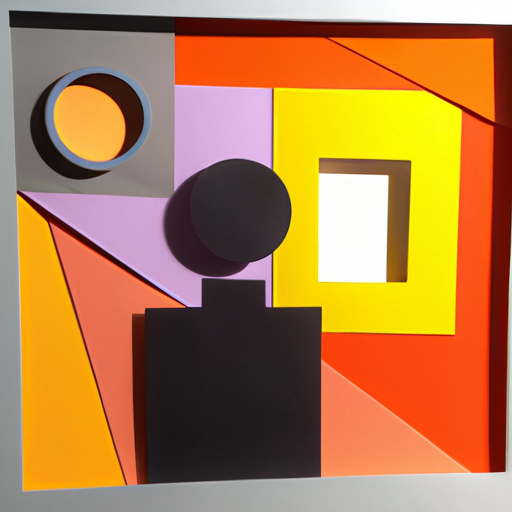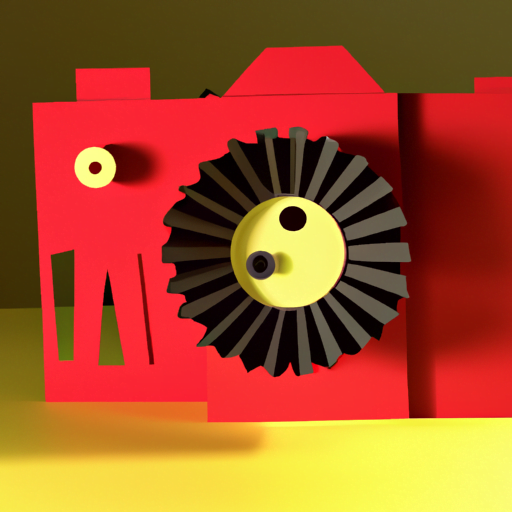
-
Table of Contents
- The Art of Papercraft: Creating Dimensional Artworks
- The History of Papercraft
- Techniques and Tools
- 1. Paper Cutting
- 2. Paper Folding
- 3. Paper Sculpting
- 4. Paper Quilling
- The Impact of Papercraft
- 1. Accessibility
- 2. Sustainability
- 3. Creativity and Innovation
- 4. Education and Therapy
- Examples of Papercraft Artworks
- 1. Peter Callesen
- 2. Yulia Brodskaya
- 3. Matthew Shlian
- Conclusion
The Art of Papercraft: Creating Dimensional Artworks

Papercraft is a unique form of art that involves creating three-dimensional objects using paper. It is a versatile and accessible medium that allows artists to express their creativity and create stunning artworks. From intricate sculptures to detailed models, papercraft offers endless possibilities for artists to explore. In this article, we will delve into the world of papercraft, exploring its history, techniques, and the impact it has had on the art world.
The History of Papercraft
Papercraft has a rich history that dates back centuries. The art of paper folding, known as origami, originated in Japan in the 17th century. Origami was primarily focused on creating intricate designs using a single sheet of paper, without the use of scissors or glue. It was a form of artistic expression that required precision and skill.
Over time, papercraft evolved beyond origami, incorporating cutting, gluing, and shaping techniques. In the 19th century, paper dolls became popular, allowing people to create movable figures using paper. This marked the beginning of papercraft as a form of entertainment and creative expression.
In the 20th century, papercraft gained further recognition with the rise of pop-up books. These books featured intricate paper mechanisms that created a sense of depth and movement. Artists like Robert Sabuda and Matthew Reinhart pushed the boundaries of papercraft, creating elaborate pop-up scenes that captivated readers of all ages.
Techniques and Tools
Papercraft encompasses a wide range of techniques and tools that artists can use to bring their creations to life. Here are some of the most common techniques used in papercraft:
1. Paper Cutting
Paper cutting involves cutting out intricate shapes and designs from a sheet of paper. Artists use precision knives or scissors to create delicate patterns and details. This technique is often used in creating paper silhouettes, intricate lace-like designs, and layered artworks.
2. Paper Folding
Paper folding, also known as origami, is a technique that involves folding a single sheet of paper to create various shapes and forms. Origami can range from simple designs like paper airplanes to complex sculptures that require hundreds of folds. It is a technique that requires patience and precision.
3. Paper Sculpting
Paper sculpting involves shaping and molding paper to create three-dimensional objects. Artists use techniques like rolling, twisting, and folding to give the paper volume and form. This technique is often used in creating sculptures, masks, and decorative objects.
4. Paper Quilling
Paper quilling is a technique that involves rolling and shaping thin strips of paper to create intricate designs. The rolled paper strips, also known as quills, are then glued together to form various shapes and patterns. This technique is often used in creating decorative elements and embellishments for papercraft projects.
In addition to these techniques, papercraft artists use a variety of tools to aid in their creations. These tools include precision knives, cutting mats, rulers, bone folders, and adhesive materials like glue and double-sided tape.
The Impact of Papercraft
Papercraft has had a significant impact on the art world, pushing the boundaries of what can be achieved with paper as a medium. Here are some ways in which papercraft has made an impact:
1. Accessibility
Papercraft is a highly accessible art form that requires minimal resources. Unlike other art forms that may require expensive materials or specialized equipment, papercraft can be done with just a few sheets of paper and basic tools. This accessibility has made papercraft popular among artists of all ages and skill levels.
2. Sustainability
Papercraft is an environmentally friendly art form that promotes sustainability. Paper is a renewable resource, and many papercraft artists use recycled or upcycled materials in their creations. By repurposing paper, papercraft artists contribute to reducing waste and promoting a more sustainable approach to art.
3. Creativity and Innovation
Papercraft encourages artists to think outside the box and push the boundaries of their creativity. The limitations of working with paper inspire artists to find innovative solutions and techniques to achieve their desired results. This has led to the development of new papercraft styles and approaches, further expanding the possibilities of the medium.
4. Education and Therapy
Papercraft has proven to be a valuable tool for education and therapy. In educational settings, papercraft is used to teach geometry, spatial awareness, and problem-solving skills. It is also used as a therapeutic activity to promote relaxation, focus, and mindfulness. The repetitive nature of folding and cutting paper can have a calming effect on the mind.
Examples of Papercraft Artworks
Papercraft artists have created stunning artworks that showcase the versatility and beauty of the medium. Here are a few notable examples:
1. Peter Callesen
Peter Callesen is a Danish artist known for his intricate paper sculptures. He creates delicate and detailed artworks by cutting out shapes from a single sheet of paper. His sculptures often depict human figures and explore themes of fragility and transformation.
2. Yulia Brodskaya
Yulia Brodskaya is a Russian-born artist known for her vibrant and colorful paper quilling artworks. She uses strips of paper to create intricate designs that resemble brushstrokes. Her artworks often depict portraits and nature scenes, showcasing the versatility of paper as a medium.
3. Matthew Shlian
Matthew Shlian is an American artist known for his geometric paper sculptures. He combines paper folding, cutting, and sculpting techniques to create intricate and mesmerizing artworks. His sculptures often play with light and shadow, creating a sense of depth and movement.
Conclusion
Papercraft is a captivating art form that allows artists to create dimensional artworks using paper. From the ancient art of origami to the modern techniques of paper cutting and sculpting, papercraft offers endless possibilities for artistic expression. It is an accessible and sustainable medium that has made a significant impact on the art world. Through its accessibility, creativity, and therapeutic benefits, papercraft continues to inspire artists and captivate audiences around the world.
